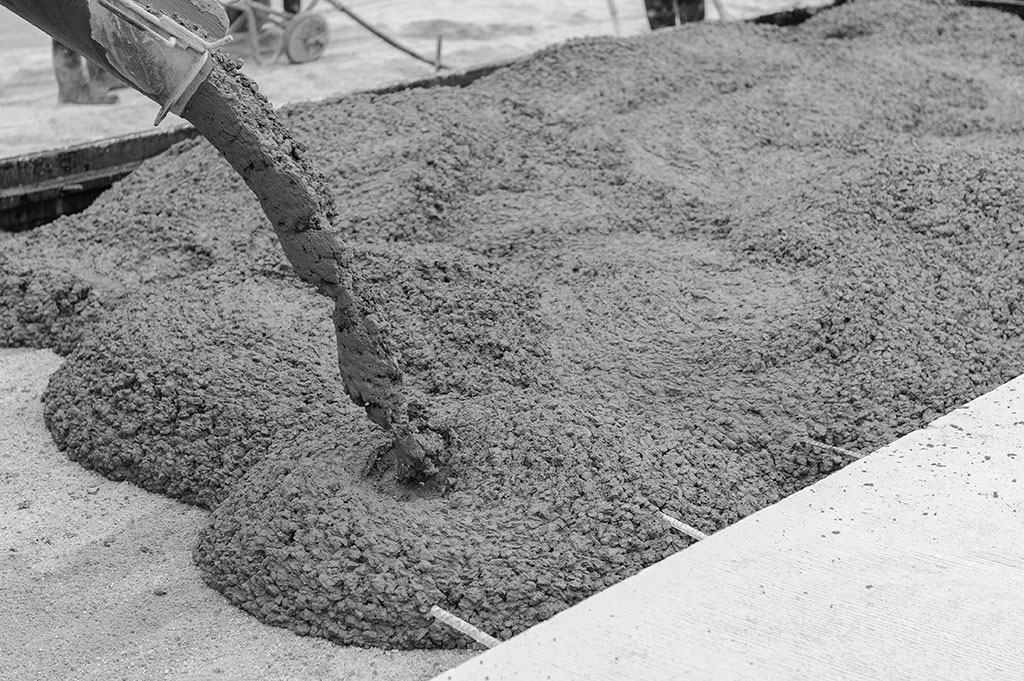Top Concrete Contractors: Reliable and Specialist Concrete Work
Top Concrete Contractors: Reliable and Specialist Concrete Work
Blog Article
Revealing the Eco-Friendly Advantages of Using Recycled Concrete in Lasting Construction Practices
In the world of lasting building techniques, the usage of recycled concrete stands as a crucial yet often undervalued resource. Beyond its conventional applications, recycled concrete offers a myriad of environment-friendly advantages that expand much past the confines of typical building products.
Environmental Advantages
Undoubtedly, one of the most substantial advantages of utilizing recycled concrete is its favorable influence on the atmosphere. By including recycled concrete right into building and construction practices, there is a substantial decrease in the demand for brand-new basic materials, resulting in preservation of natural deposits. This process assists in preserving aggregates, water, and energy that would certainly have been made use of in producing new concrete. Furthermore, making use of recycled concrete lessens the quantity of waste being sent out to garbage dumps, consequently minimizing ecological air pollution and relieving the stress on garbage dump capacities.

Furthermore, the production of traditional concrete is a considerable source of carbon discharges due to the energy-intensive process of concrete manufacturing. On the other hand, recycled concrete has a lower carbon impact as it minimizes the need for new concrete production. This decline in carbon exhausts contributes to mitigating environment modification and supports sustainable building and construction practices. On the whole, the environmental advantages of making use of recycled concrete are significant and play a vital role in promoting eco-friendly building methods.
Cost-Efficiency
Accomplishing cost-efficiency is a vital consideration when assessing the utilization of recycled concrete in building and construction projects. One of the essential advantages of making use of recycled concrete is its cost-effectiveness compared to conventional concrete.
Furthermore, using recycled concrete can lead to cost savings in landfill prices by drawing away concrete waste from disposal websites. This not just decreases the ecological effect but also removes the costs linked with waste removal. Additionally, the sturdiness and performance of recycled concrete are comparable to conventional concrete, making certain that price financial savings do not jeopardize the high quality of the building and construction.
Toughness and Toughness
Recycled concrete offers similar, if not remarkable, resilience and stamina buildings to conventional concrete - Concrete. Via improvements in handling strategies and top quality control, recycled concrete can meet or surpass the efficiency standards of standard concrete.

Waste Decrease
When it comes to making use of recycled concrete, waste reduction is a key benefit that adds dramatically to ecological conservation. By integrating recycled concrete right into construction tasks, this waste is repurposed and diverted from garbage dumps, reducing the total environmental influence of building activities.
In addition, the usage of recycled concrete can lead to set you back savings for building and construction tasks, as investigate this site it is often more inexpensive than sourcing and transferring brand-new products - Concrete. In conclusion, waste reduction via the use of recycled concrete is an important part of sustainable construction methods that benefits both the construction and the environment sector as a whole.
Energy Preservation
Energy preservation is a vital aspect of lasting construction techniques, intending to reduce the general energy intake connected with building operations and materials manufacturing. When it pertains to utilizing recycled concrete in building and construction, substantial energy savings are accomplished contrasted to traditional concrete manufacturing. The procedure of creating recycled concrete includes reusing and squashing existing concrete materials, which eats much less power than mining, handling, and transporting resources for brand-new concrete manufacturing. Furthermore, making use of recycled concrete can help decrease the need for virgin accumulation, more reducing the energy-intensive extraction and handling of natural deposits.
Conclusion
Finally, the use of recycled concrete in sustainable building and construction practices supplies numerous environmental advantages, cost-efficiency, toughness, strength, waste reduction, and energy conservation. By incorporating recycled concrete right into construction jobs, we can add to a much more eco-friendly and lasting future. It is important for the building market to focus on using recycled products to help lower the environmental impact of building activities.
One of the essential benefits of using recycled concrete is its cost-effectiveness compared to traditional view concrete.Additionally, the use of recycled concrete can lead to financial savings in landfill prices by drawing away concrete waste from disposal websites. The resilience and efficiency of recycled concrete are similar to standard concrete, making certain that expense savings do not compromise the top quality of the construction.

Report this page